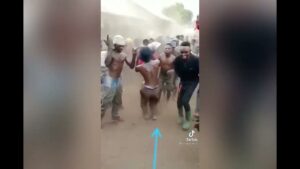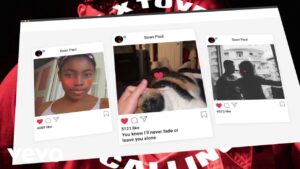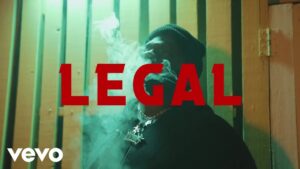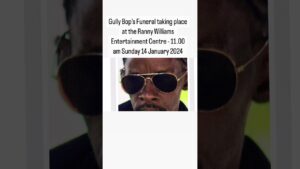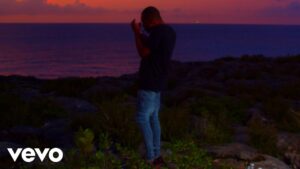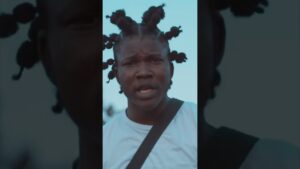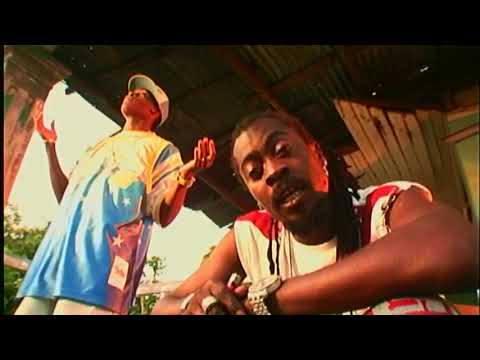
Beenie Man “How Can We Work it Out” (2005)
2021
@LeoOReggio
A historic video in the sense that it was made as a testament to Beenie Man surviving his near-fatal crash in 2004. Beenie Man crashed his Hummer in the wee hours of Thursday morning, January 15, 2004, after finishing a video shoot with me for the song “Rockaway”. I started the video shoot for this song after getting a call from Beenie Man saying “Leo mi need fi shoot a video right now, meet me at ….” One of the locations was the garage where the crashed Hummer was stored.
One of Jamaica’s biggest exports, Beenie Man’s recording career stretches back to 1981, although it was in the sound systems where he later made his mark. The witty toaster began his true ascent to stardom in the early ’90s, and by 1994, his reputation couldn’t be beaten. Beenie Man was born Moses Davis in the tough Waterhouse district of Kingston, Jamaica, on August 22, 1973. By the time he was ready for school, the toddler had already decided on a career as a DJ. He wasn’t the first tot with dreams of the limelight, but Beenie actually had a true gift for gab. His shot at stardom came when he was only eight when he took first prize at the national Teeny Talent contest. This led to a meeting with producer Junjo Lawes, who recorded the diminutive DJ’s debut single, “Too Fancy.” Bunny Lee then took the boy under his wing and put him to work at his Unlimited sound system.
By 1983, the youngster found himself appearing on Lawes’ Junjo Presents Two Big Sound, which was recorded live and featured such DJ heavyweights as Dillinger and Fathead. Along with Unlimited, Beenie was also DJ’ing at Prince Jammy’s Volcano sound system, had a hit single to his credit, “Over the Sea,” produced by Niney Holness, and even had a debut album out. Produced by Lee, The Invincible Beenie Man, the 10-Year-Old DJ Wonder’s title pretty much summed it all up. He recorded some songs with Barrington Levy in 1984, two of which, “Under Mi Sensi” and “Two Sounds,” would resurface in remixed form later in the ’90s. But for the moment, his recording career came virtually to a close, bar the occasional single. But the young DJ remained a sound system favorite, even as he now turned his attention to his schoolwork.
Not surprisingly, Beenie’s younger brother, Little Kirk, was keen to follow in his footsteps, and five years later the siblings hooked up with producer Patrick Roberts and began recording a series of singles that quickly brought them into the national spotlight. In 1992, Beenie appeared at Reggae Sunsplash and such was the response that the DJ now felt ready to take on the big guns. Beenie’s first target was the acclaimed Bounty Killer, although the young DJ had cause for his attack as the veteran had stolen his catchphrase, “people dead,” and the war was on. There was a lull in the very public battle in 1993 when Beenie left Kingston for almost a year after being booed off the stage at a national show celebrating the visit of Nelson Mandela. Upon his return the next year, there was a public reconciliation with Bounty Killer, which resulted in the split album Guns Out.
Beenie had a major change of heart, further evidenced by his single “No Mama No Cry,” a version of Bob Marley’s “No Woman No Cry,” a scathing indictment of violence, inspired by the murder of fellow DJ Pan Head. The song topped the Jamaican chart and brought the DJ instant acclaim. Pan Head’s murder would go unsolved, adding to Beenie’s emotional devastation, with additional contemporaries lost to violence later that year. Beenie was affected by these events and Sly & Robbie, the producers of his “No Mama No Cry” single, was instrumental in guiding the young DJ toward his conversion to Rastafarianism.
A new attitude and a hit single instantly turned Beenie’s career around. Now working with all the island’s top producers, the DJ recorded a slew of songs, many of them religiously themed, including “Praise Him” and “World Dance” (which took the Best Single Award at the Jamaican Music Awards). The hits-heavy Defend It and Dis Unu Fi Hear were both released in 1994 and combined more culturally themed raps with a hardcore dancehall sound. Beenie’s stardom was confirmed by his taking the DJ of the Year Award that same year. Signing to Island Records, Beenie released the seminal Blessed album, which featured another clutch of hits, including the dancehall smash “Slam.”
While in the U.K., the DJ fired up the British dancefloors with a jungle remix of “Under Mi Sensi.” By the end of the year, Beenie was a shoo-in for the DJ of the Year Award. Maestro, Beenie’s first “real” album (as compared to his previous hits collections), arrived in 1996. Produced by Patrick Roberts, it was a stunning effort featuring a kaleidoscope of moods.
After headlining Reggae Sunsplash in 1998, Beenie signed to Virgin Records in the U.S.; The Doctor was the first fruit of this new union and was an instant dancehall classic.

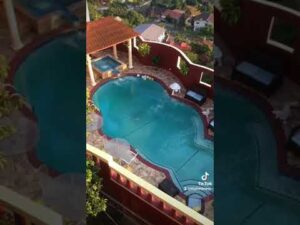


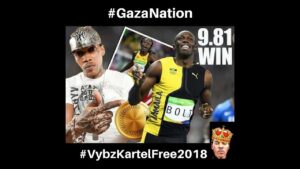
 Vybz Kartel Seh Him And Usain Bolt Share The Same Respect
Vybz Kartel Seh Him And Usain Bolt Share The Same Respect 
